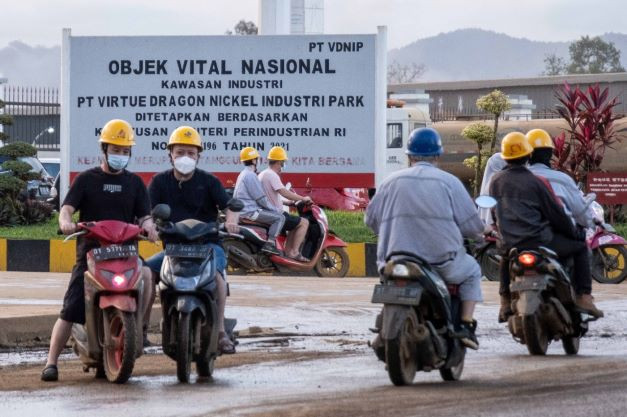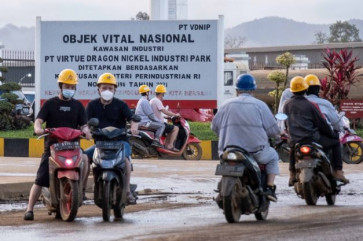Popular Reads
Top Results
Can't find what you're looking for?
View all search resultsPopular Reads
Top Results
Can't find what you're looking for?
View all search resultsIndonesian nickel today is what spices were to the VOC
Colonized people all around the world were lured and tricked to sign treaties so that, if problems arose, the colonizer could say: “I have to punish you, because you are not abiding by the rules that we have set.”
Change text size
Gift Premium Articles
to Anyone
T
hree years ago, I fiercely opposed Dutch King Willem-Alexander’s state visit to Indonesia. In an opinion article for this newspaper, I argued that the Western colonial empire never really collapsed, and that old-style colonialism only transformed into a new style of neocolonialism.
As an example of the ongoing greediness of the West, I referred to Europe’s opposition of the export ban on raw nickel that had just been implemented, a case that has yet to be settled.
Often, colonialism is linked to violence. But focusing on violence alone is misleading as it neglects understanding the causes of said violence. European colonists didn’t just commit atrocities out of the blue, they were aiming for something. The source of all that violence was the search for natural resources.
The Europeans wanted a monopoly over these resources with no exchange or equal profit. Nobody would voluntarily agree to these one-sided and unattractive “deals”. Therefore, European colonists had to use force to get what they wanted.
In order to justify and normalize this robbery, which was presented as “trade”, laws and regulations were created. Colonized people all around the world were lured and tricked into signing treaties so that, if problems arose, the colonizer could say: “I have to punish you, because you are not abiding by the rules that we have set.”
Before violence occurred, the colonizers’ interest in resources led them to attempt to get these resources for extremely low prices through deals with locals, written on paper. After they met resistance, atrocities were committed. Violence has always been a byproduct, never the goal. The basis of colonialism lies in the willingness to use any means necessary to fulfill selfish greed.
This greed has never stopped. Nickel today is what spices were to the Dutch East India Company (VOC). Indonesia became independent in 1945, and except for West Papua, Dutch soldiers left the archipelago in 1949.



















